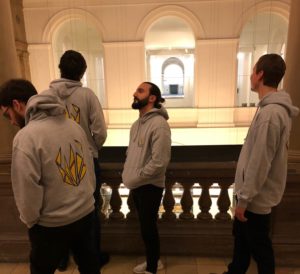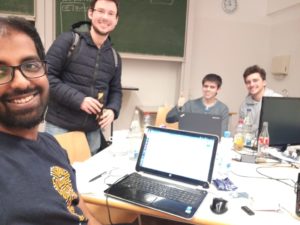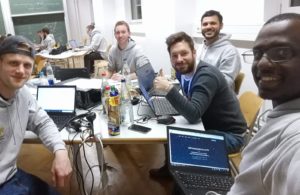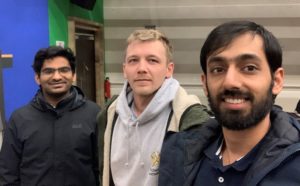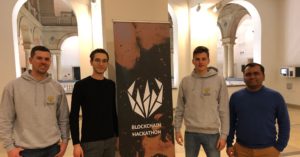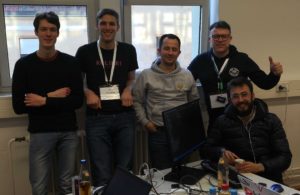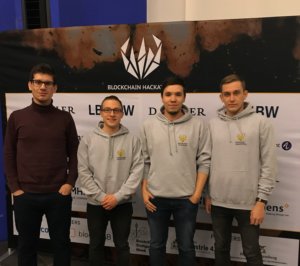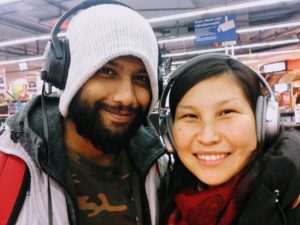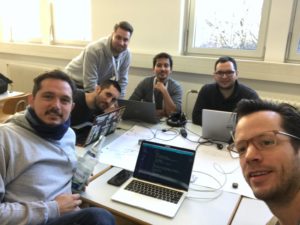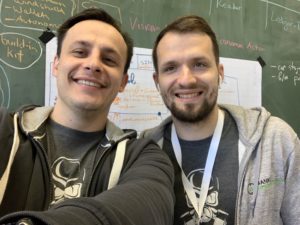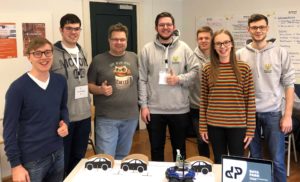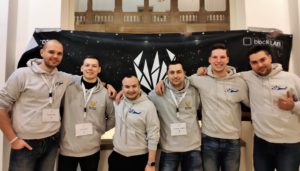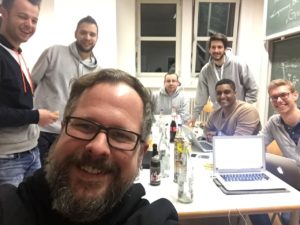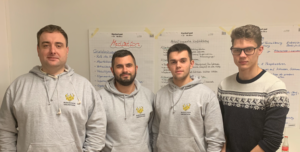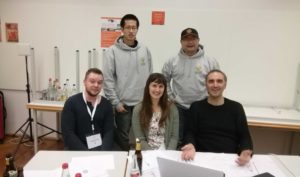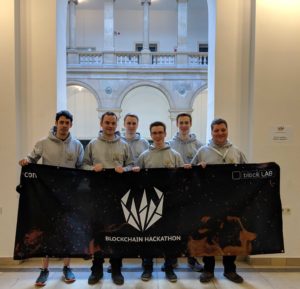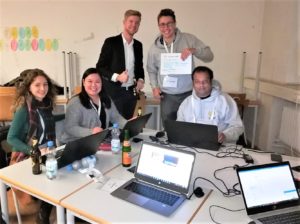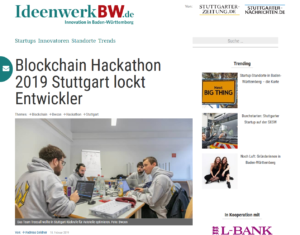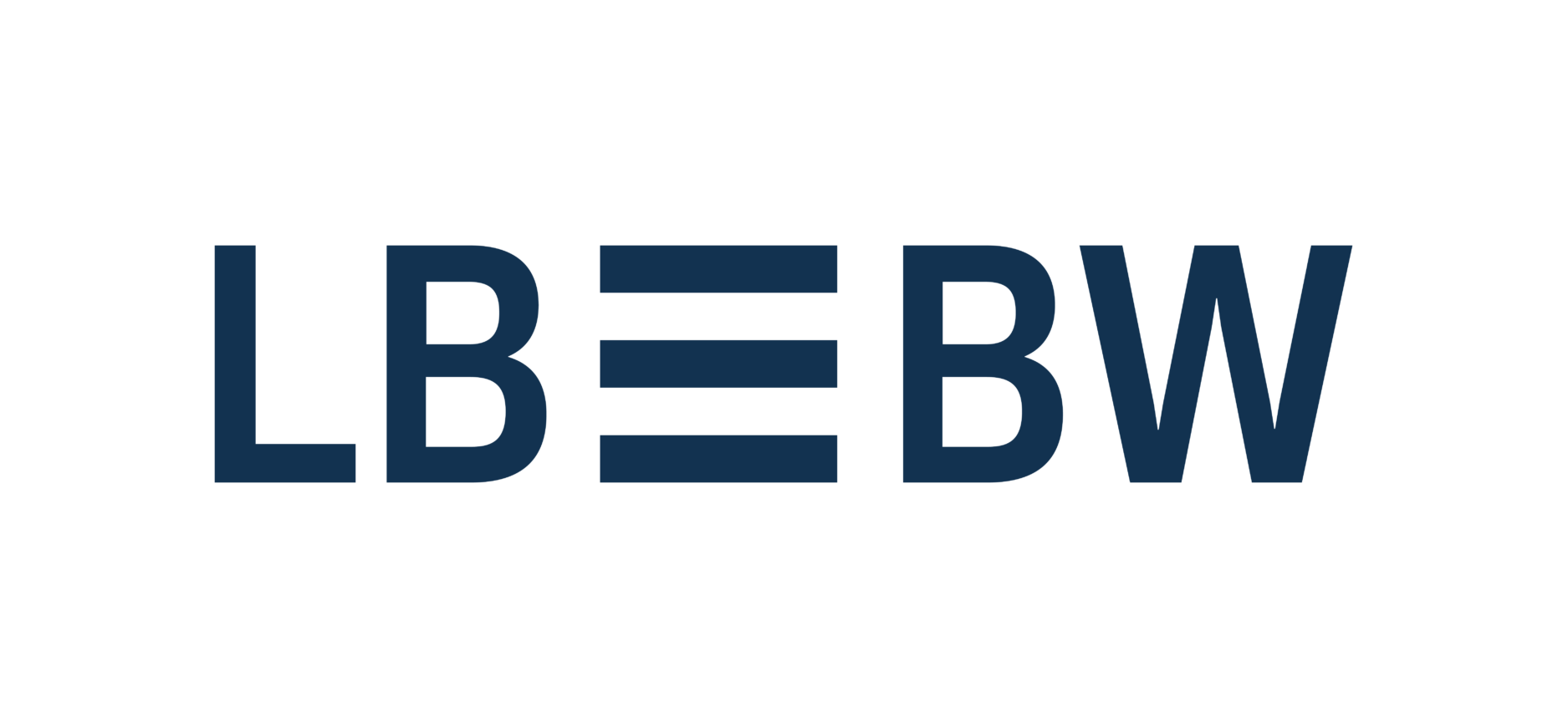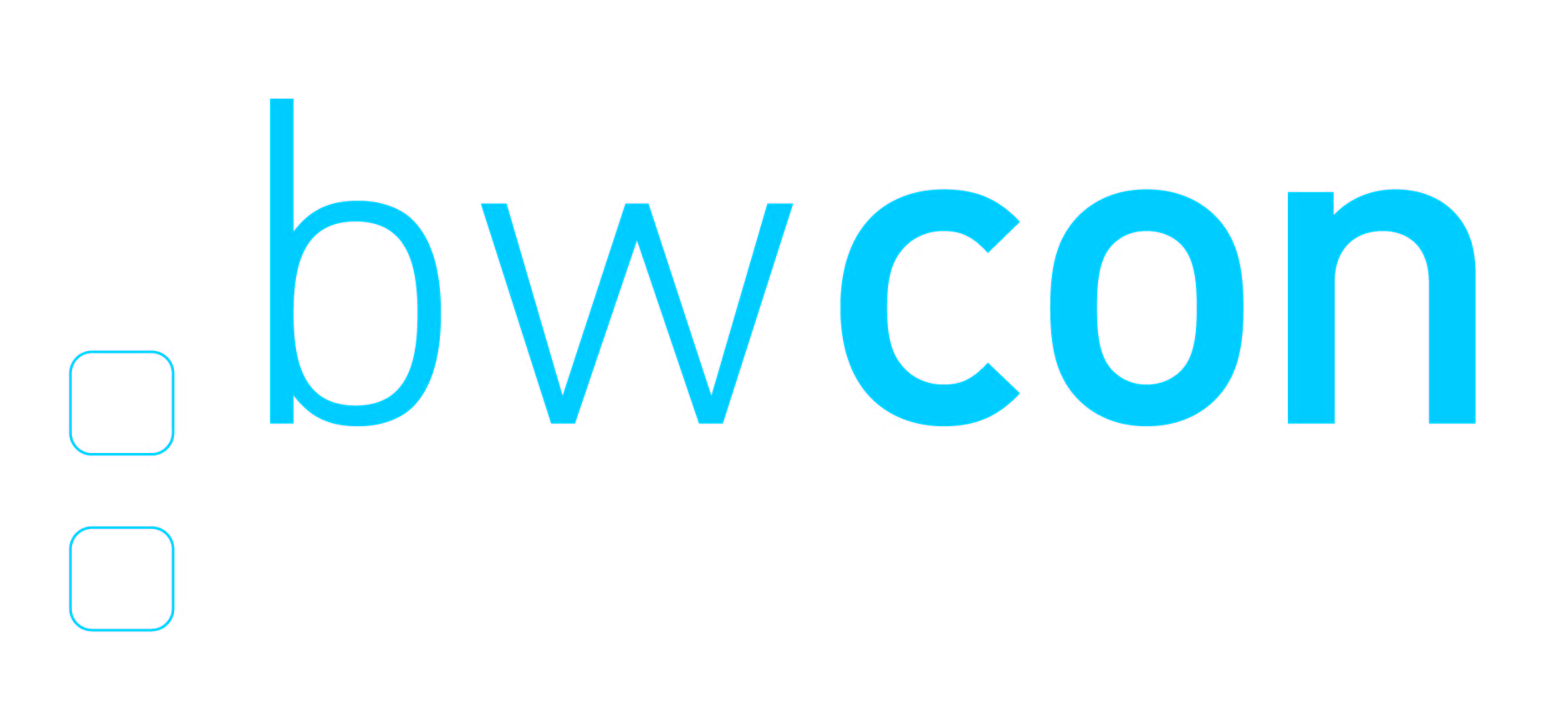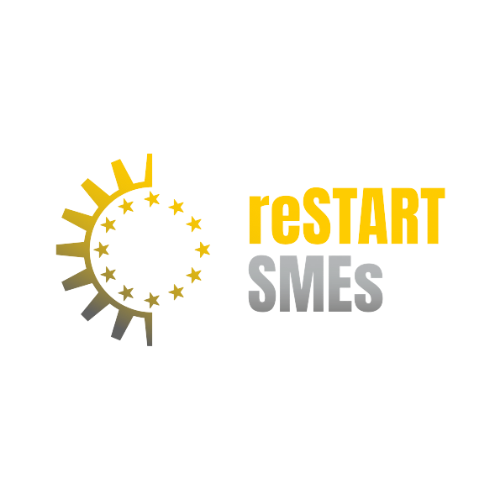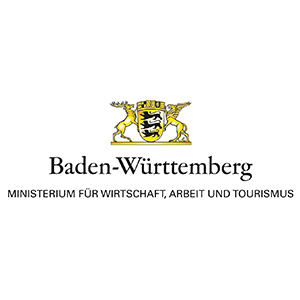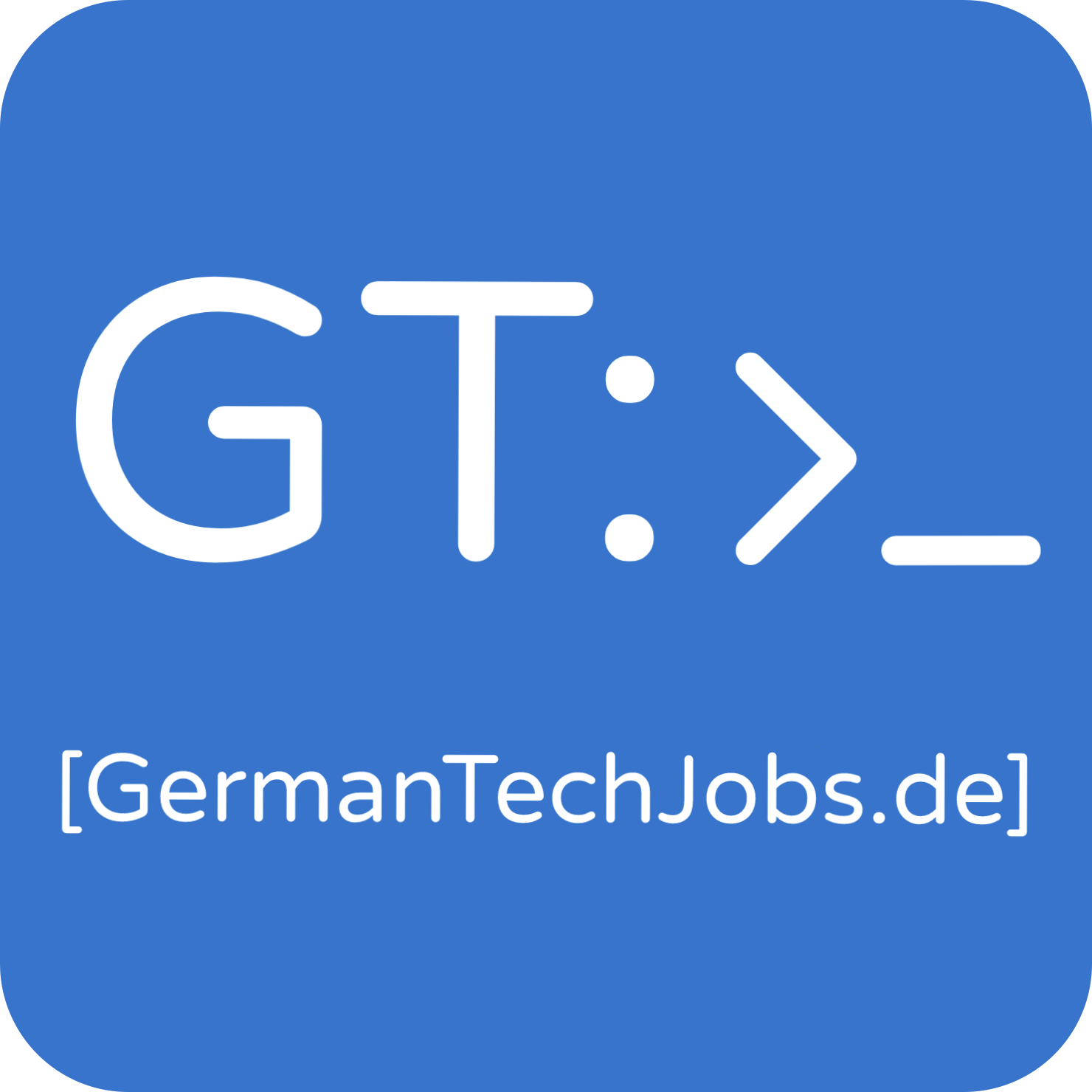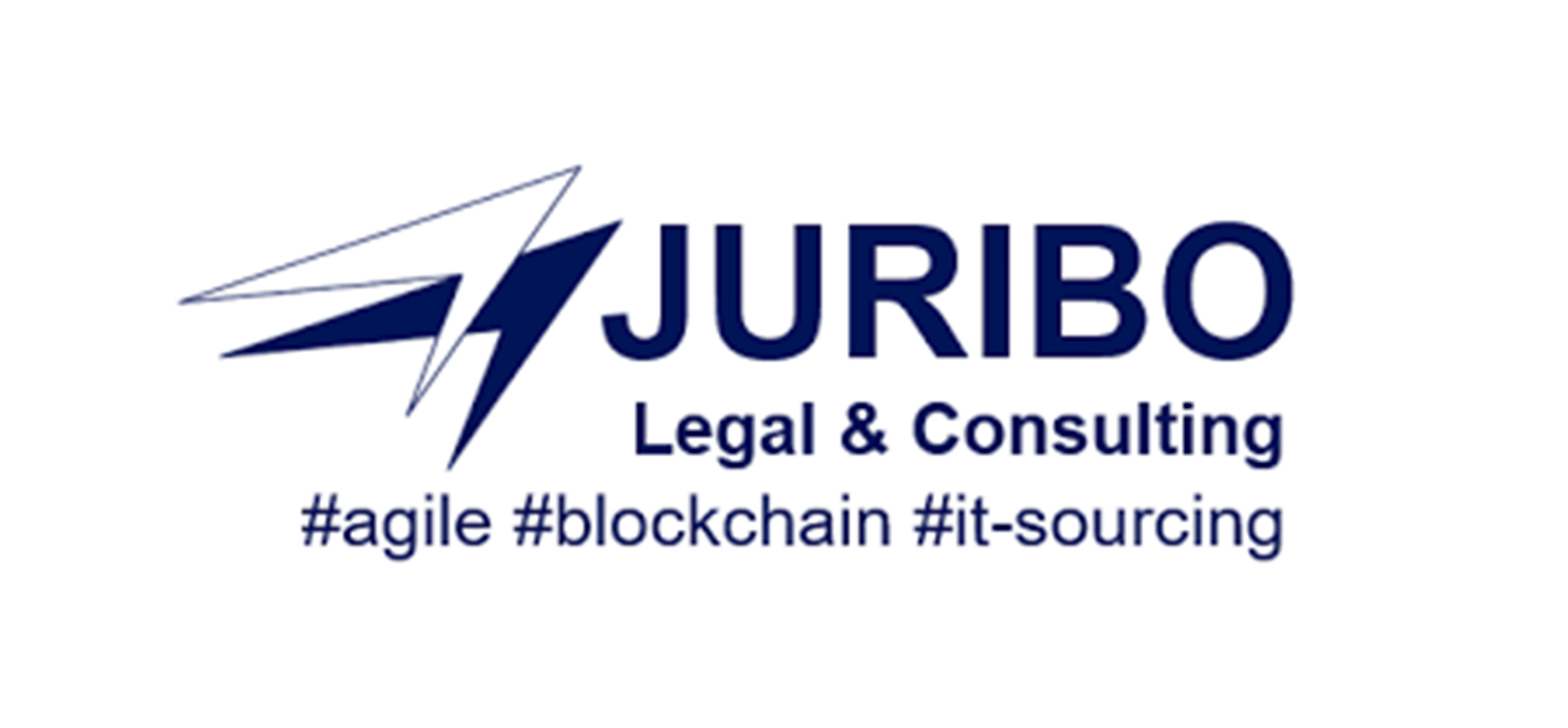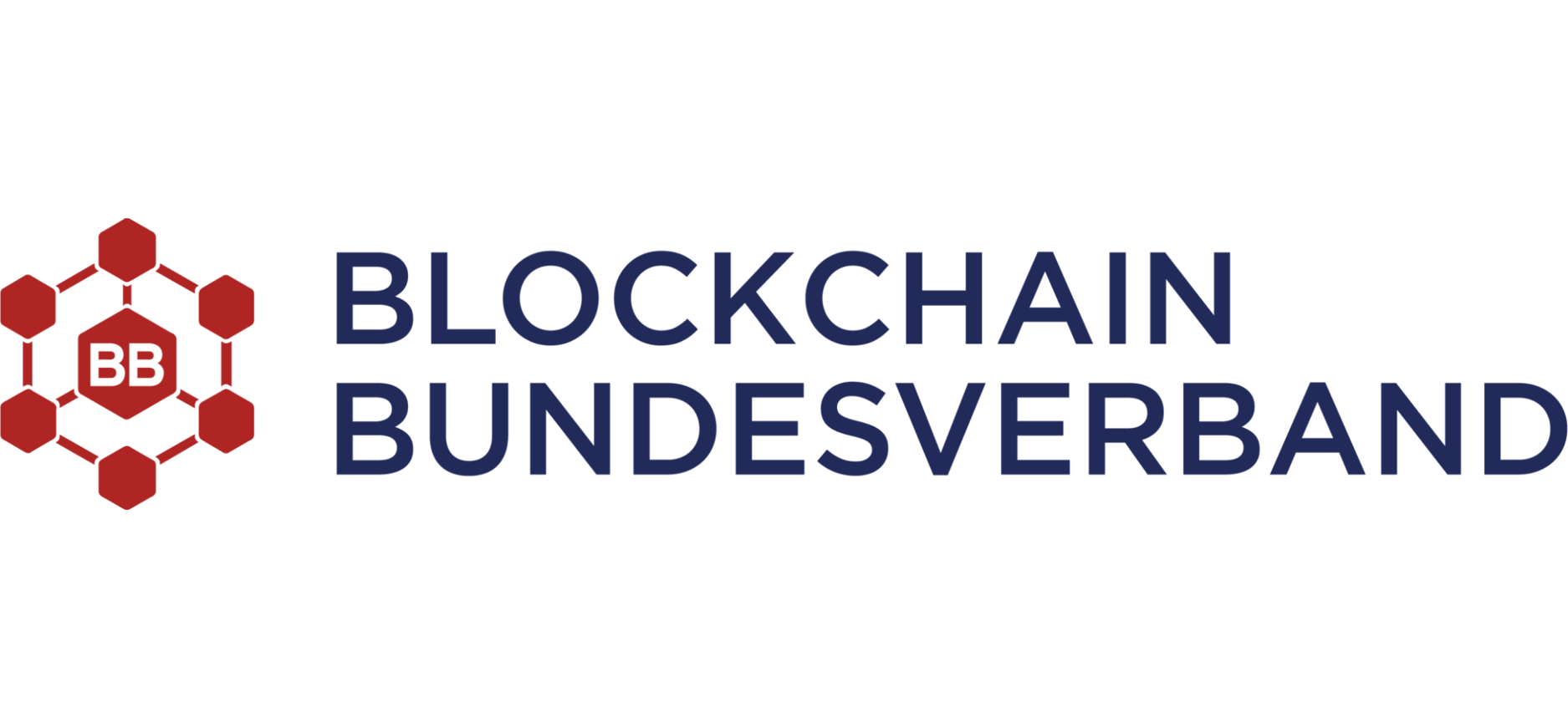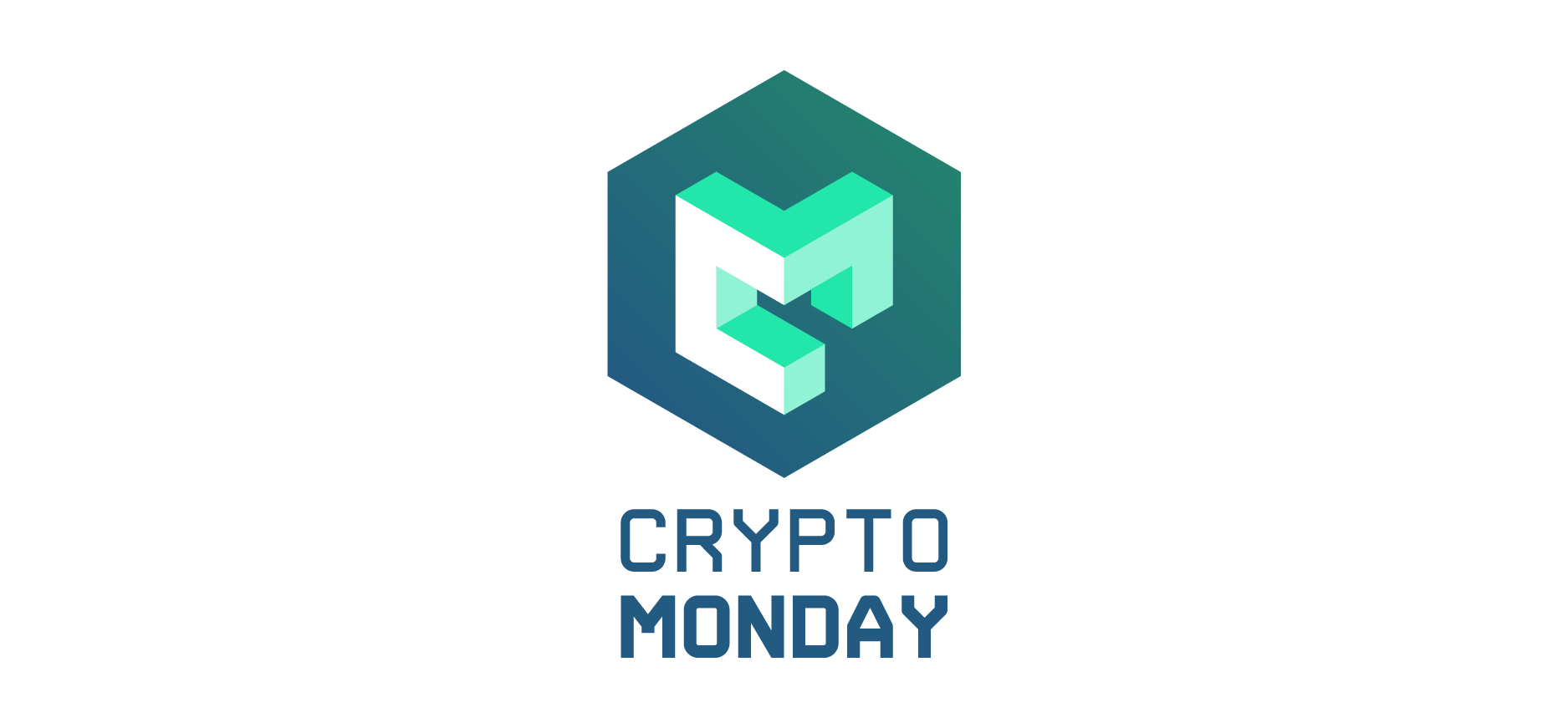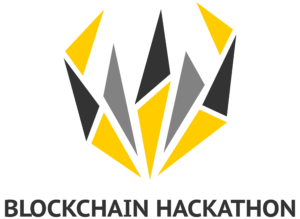
days
Participants
Teams
Challenges
15th – 17th Feb 2019 Stuttgart
CHALLENGES & TEAMS
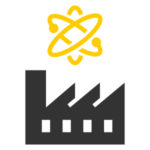
INDUSTRY 4.0 – IoT
Converging the Crypto Universe into Industrial IoT.
Digital transformation will change core paradigms of factories of the future enhancing a rather product centric view on manufacturing to a service centered view. This comprises advanced manufacturing processes and adaptive and smart manufacturing systems where blockchain technologies could boost radical new innovation towards collaborative and mobile enterprises and customer-focused manufacturing.
Car recall numbers have risen significantly over the last years. The recall process potentially involving several layers of manufacturers is time, personal and therefore money consuming.
We propose a solution that utilizes the Ethereum blockchain to make the recall process fast, secure and efficient. Throughout the whole production process, we digitally mirror all parts and subparts of a car, creating a dynamic tree structure for smart recalls – Treecall.
With this tree, we can on one hand track down the responsible subparts of malfunctioning parts throughout multiple layers and considering various variables, such as combination of parts. On the other hand, we can traverse up the tree to notify superparts about likely future malfunction after a faulty batch has been identified.
Furthermore, we are able to use the combined data of all the treelayers for predictive analysis, making the recall process smarter and preventing costly malfunctions before their occurrence (AI not yet implemented).
Feel free to review the all open source code here: https://github.com/tree-hackers/Treecall
The impetus of this project is to help companies ensure high quality and efficiency across the supply chain process. This will have far reaching consequences, especially in the medical industry.Our hardware product, called THE CUBE, uploads critical measurements such as temperature, humidity, location, and vehicle acceleration data to the Distributed Ledger and allows users to monitor shipping conditions during all phases of the supply chain journey, all without having to trust anybody. Thus you can feel secure that your medicine was at every point stored in appropriate environmental conditions.
The long term vision is to be a Blockchain enabler for all kinds of devices (e.g. machines in manufacturing) by connecting THE CUBE to them which then gives them an identity and makes them part of various Blockchain networks. THE CUBE will act as an interface to all kinds of Distributed Ledger Technologies, leveraging the strengths of each one of them.
Our idea is to enable secure “Decentralized Manufacturing as a Service” using Blockchaintechnology. For our prototype we are aiming to print documents using a convential printer. The documents will be sent to IPFS, while the digital content will be matched to a public key on the Ethereum Blockchain and sent to the printer. By doing so, the content creator is able to prove that he/she is the owner of the digital file and will be automatically incentivized when other users are using the file in our decentralized manufacturing service. Our Business model consists out of two products, one for Private Individuals (C2C), the other one for businesses (B2B).
Disrupting the future of retail with blockchain and IoT. Retailers love to adopt the Amazon Go model of retail (no lines, no checkout, just grab and go) and its demand (Bloomberg Reference Amazon go 3000 shops by 2021). Every retailer implementing a individual solution is not feasible because their customers require multiple apps for each retailer and the development effort of AI based solution. Having a single collaborative protocol/ standard will resolve these issues with only requiring a single app for all retailers. We implemented this standard/protocol using self-sovereign identity of blockchain (implemented in u-port) for identity management of consumers and smart contracts to define interactions between retailers. Using object detection convolutional neural networks implemented on Microsoft Azure cloud and Google TensorFlow, we have implemented a first MVP with 98% accuracy of small retail items and integrated our standard/protocol in it. We faced challenges while refining our idea to provide maximal blockchain value use-case along with demonstrating something cool on stage. We are super-proud of working MVP of u-port integration with cloud infrastructure running AI models along with a smartphone app to provide user details and notifications.
Identity of Things is the unique decentralised verification of any type of products using a miniscule NFC and Secure Element based device, designed for those corporations, which truly care about their brand.
This small device helps anyone to verify the authenticity of the product by using cryptographic methodology leveraging the secret key in tamper-proof Secure Element and maintaining the public key in Smart Contracts on the Ethereum Blockchain. Moreover, we use the ENS (Ethereum Name Service) technology to associate the registry of the products to the respective brand.
IoT + Blockchain compliance solution based on the Industry Security Guidelines for Transport of Dangerous Goods (hazardous goods, national goods,special transport etc. ) in EU. Enabling data processing and reporting in secure, traceable and tamper-proof way in private, permissioned blockchain network. How? IoT as security smart locks (replacing current seals, and other sensors), to prevent fraud, lowering the cost of the process and offering alignment with supervisory regulations. Reference: https://ec.europa.eu/transport/road_safety/sites/roadsafety/files/pdf/dangerous_goods/industry_security_guidelines.pdf
- Problems
The growth in the number of electric vehicles is limited by the infrastructure that allows charging electric vehicles
The market of private charging stations for charging electric vehicle is not developed - Solution
We introduce a platform where everyone will be able to create their own charge stations and sell electricity produced by their own generators. Moreover we propose using dynamic price-forming mechanism in the system.
Nowadays with all social media and the Internet fake news spreads like a wildfire. Anyone can create various unverified “news” and issue it for a credible content platform. Fake news brings even more traffic than real news, which incentivizes people to create more fake news. People tend to believe what they read from easily available sources and don’t assess the content critically. This trend can undermine a person’s /organization’s dignity and even cause loss of life.
Blockchain technology is not only the way to create new business models but can combat the problems of journalistic ethics, propaganda and bad impacts from misusing the social media.
The modern citizens should be able to differentiate the “garbage” from the real news. And our service “in news veritas” will help this trend get stronger.
The implementation is based on Corda and uses a simple plugin to present readers the way the trust for media sources can be easily built.
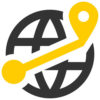
MOBILITY
Help us create new solutions for vehicle networks where innovative technologies such as Blockchain or Artificial Intelligence can lead to higher efficiency or even entirely new products and processes.
Find out more about this challenge in our blogpost.
A fair price on the second-hand market! BlockBook helps vehicle owners to prove the vehicle history to get the price they deserve when selling their vehicle. Using a Blockchain to store mileage and service data, to ensure that customers on the second-hand market get what they pay for. The mileage information will be tracked and stored on the Blockchain to make it tamper-proof. The inspection history will also be tracked on the Blockchain, where every inspection will be stored with information about services and changes. This will guarantee, that a customer on the second-hand market knows exactly what the history of the car is that he wants to buy. Customers will be much more likely to buy such a car, which has an easily accessible and tamper-proof record.
Currently, there is no economically feasible way to gather holistic and cross-organizational information on parking space utilization in cities and communities resulting in a knowledge deficit between car drivers, parking lot providers, and cities. For that reason, we developed a decentralized data marketplace in order to enable automated parking lot search services to these parties as car radar data is stored in one shared and secure data base, mutually accessible for all data marketplace stakeholders including car manufacturers, parking lot providers, and private individuals. In addition, we add an incentive and payment model in order to reward car owners for sharing their data on available parking lots, and pay the parking lot owners for providing their service, thus creating a decentralized multi-stakeholder ecosystem where supply and demand can meet and transact in a secure and transparent manner.
To secure the commerce of data between buyer and seller, we add a transaction layer on top of the data base, where all the payments and transactions are verified and persisted. Leveraging blockchain technology in that regard allows payment security, a shared governance model, efficient reconciliation of data, and trust between the members of the ecosystem.
Problem
Find a place to rest and refresh when you’re on the go.
Solution
An infrastructure concept of mobile capsular houses that can be deployed in transport hubs and events’ spots. The quality of capsules is getting tracked in Ethereum based platform we’ve built. And with our mobile app user can:
- find the capsule nearby,
- verify if it is in a good condition (via our Ethereum powered platform),
- unlock it and pay “as he stays” using payment algorithm defined in our smart contracts.
By facilitating a dynamic and cause-related internalization of pollutant emissions from public road traffic, GreenFee is creating a greener environment with mobility for everyone. Generated by crowdworking, real-time profiles of air pollution offer cities a valid management instrument for the emission of pollution rights. Acquired by means of masked authenticated messaging (MAM), drivers of homologated Euro 5 (or less) diesel-powered combustion vehicles are authorized to participate in public road traffic. While sensors record actual emissions, geographical data as well as corresponding emission charges are being documented within the blockchain. Outstanding liabilities will comfortably be deducted from the wallet, whereas agency costs for authorities are being minimized.
Offering a dynamic traffic management system, GreenFee forms a superior alternative to today’s driving bans or hardware retrofits. GreenFee’s vision is to establish a wide range of long-term applications for a sustainable emission management, industry-wide.
Photo: n/a
Jerko Horvat & Alexandros Koufatzis
Our idea is that mobility will change in future. Share economy will become more and more, hence our vision is that customer will rent mobility services and not buy cars. I.e. you rent that mobility service which fits your needs at its best, either a bike for travelling quickly through the inner city, by car getting to the next meeting or by public transport to your office and back home. All the ticketing and the availability of the pool of mobility vehicles will be based upon blockchain technology.
A B2B solution for logistics companies providing local and international courier services. Blockchain-based Letter of Credit smart contracts system in combination with a smart reusable IoT device equipped with various sensors allows all participants of supply chain to get trusted historical data about conditions of shipments delivery. It also allows to generate a Trust Rating of logistics companies using Artificial Intelligence algorithms.

FINANCE
Show us how a bank can use the blockchain technology to become the everyday platform within the industry.
Find out more about this challenge in our blogpost.
We want to build a distributed auditing/rating system. Nowadays, every firm costs much on the auditing, including man power and money, and to make sure the data of firms are convinced. Now, we have an idea, use the Distributed Ledger Technology to improve this process. Here we use the IOTA ( a kind of DLT, it has better scalability than traditional blockchain) and AWS to store the raw data. The firm will connect to these to service, upload and synchronize their data in active time. The raw data will be hashed and encrypted, then published to the IOTA network. In the same time, the raw data will be uploaded to the AWS and store here. When the user want to see the data of one firm, he can get the hash data from IOTA network on a webpage. In the same time, he can use the public key to check the integrity of the data. If it is verified, then the data is tampered and convinced. This make the firm’s production and sales data etc. more transparence with DLT.
We develope a platform to help the German Ministry of Finance to reduce Sales tax evasion by using the Blockchain. Germany losses 23.5 Bil.€ of sales taxes per year, because fraud is committed by the seller. Our solution enables and incentivizes private customers to check on the trustfulness of their Business partner. This is achieved through a two-way reporting system to the tax authority in which the buyer and the seller is incentivized to report their transactions. Using the Blockchain Corda, we securely and automatically transfer the data without disclosing private data. We can not turn bad guys into good guys, but we can enable the good ones to watch the bad ones.
Provide a free application working on a private blockchain to small and medium sized companies (SMEs). This application is based on the open source blockchain technology Stellar. Our SW solution has an intuitive interface and is mobile (can be used on a smartphone). Using this technology will make internal billing fun, fast and fraud resistant. The internal transactions costs will be reduced by 90%. To summarize: make intra-company transactions super fast, easy, transparent & drastically costs effective
We deal with the financial instrument of bank guarantees (Aval) and first simulate the process of issuing via R3 Corda. But our idea of guarantees in a distributed ledger system is actually a much more visionary approach than pure standardization and digital tracking of this financial product. With AVISION, we are planning an innovative platform for granting bank guarantees to entrepreneurs. This is because guarantees have decisive advantages over classic seed or venture financing. AVISION allows the individual release of guarantee volumes by investors. This encourages founders to make their decisions more consciously, as guarantees only take effect when the founder’s budget is no longer sufficient.
Speakers
Jury
In the press
Blockchain Hackathon 2019 Stuttgart lockt Entwickler
Am zweiten internationalen Blockchain Hackathon 2019 Stuttgart haben in diesem Jahr 200 IT-Experten, Unternehmer und weitere Interessierte teilgenommen. Sie versuchten, binnen drei Tagen Aufgaben aus den Bereichen Mobilität, Finanzwesen und Industrie 4.0 zu lösen.
